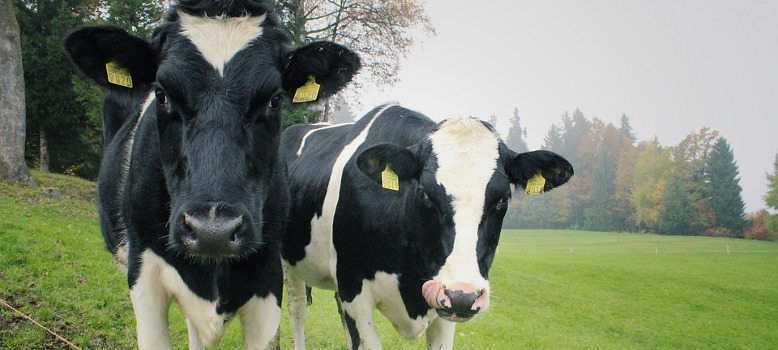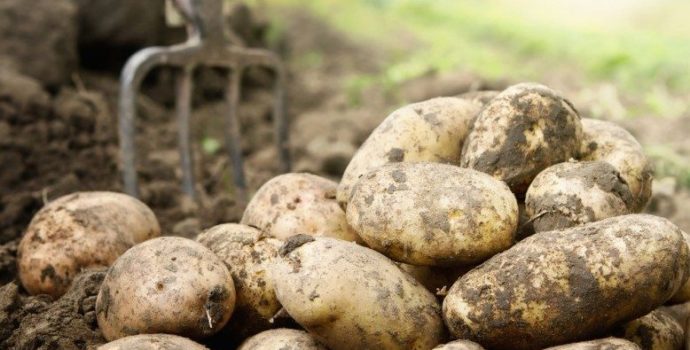Brexit Solutions Needed to Maintain Essential Cross-border Trade in Agriculture – IFA

Speaking from the Virginia Dairy Show today, IFA President Joe Healy said real solutions and compromise will be required in the Brexit negotiations to safeguard the vitally important cross-border agriculture trade on the island of Ireland.
He said this issue is of deep concern to farmers in the border region.
Every year, thousands of animals and huge volumes of agricultural produce worth €2.2bn* move over and back across the border with Northern Ireland for further finishing or for processing, as part of a highly-integrated supply chain. These trading links have built up over many years and are critically important for farmers and processors on both sides of the border.
The IFA President said the UK’s insistence on leaving the Customs Union and pursuing an independent trade policy, as detailed in their paper on the future customs arrangements last week, amount to a hard Brexit and would be very negative for Irish agriculture and the value of our agri-food exports.
Joe Healy said it is positive that the UK has put forward the principle that they wish to avoid a border in either the UK or Ireland for any purpose, including customs or agri-food checks.
However, he said it is difficult to see how this could be achieved in practice, as cross-border trade in agricultural produce encompasses crucial issues such as food safety and animal health. “If the UK insists on pursuing its own free trade agreements, two divergent regimes would have to operate on the island and it is impossible to see how border checks could be avoided. The UK will have to compromise on their future trade ambitions with third countries in the area of agricultural and food products.”
Mr Healy said, “Ireland is the EU economy that will be the most impacted by a hard Brexit, and farming and agri-food will be the most impacted sector. Ireland’s agri-food sector has a high dependence on the UK market, with 40% of exports destined for the UK market annually.”
Joe Healy said, “The option of a ‘customs partnership’ between the EU and UK is simply not an acceptable outcome for the agriculture and food sector, as even under this arrangement, the UK would still be committed to pursuing their own trade policy for imports into the UK.”
He said, “Any increase in low-cost food imports into the UK that would undermine the value of the UK market would have a devastating effect on the Irish agri-food sector. The potential displacement of Irish food exports from the UK market will in turn destabilise the EU market balance.”
“In order to safeguard the future value of the Irish and EU farming and food sector, the EU must negotiate a balanced Free Trade Agreement with the UK, which would include the following specific conditions for agriculture and food:
• Tariff – free trade for agricultural products and food;
• Maintenance of equivalent standards on food safety, animal health, welfare and the environment; and
• Application of the Common External Tariff for agricultural and food imports to both the EU and UK.
Dairy outlook
On the dairy outlook, Joe Healy recalled that, exactly a year ago, the first milk price increases after three years of cuts had just been announced. “The mood of dairy farmers at the Show last year altered instantly, as they really needed to see prices lift from the 23c/l doldrums of July 2016. They were only just starting to see the light at the end of the dairy crisis tunnel.”
“Since then, milk prices have improved significantly, by an average of 10c/l. However, dairy farmers are only just now able to catch up with the three years of cash flow difficulties which preceded the uplifts of the last 12 months. To be able to face fully their financial commitments, including merchant credit debt with their co-ops, they need the continuing market recovery fully passed back in further milk price increases,” Mr Healy said.
“Between 35% and 40% of our milk supplies will be produced in the Aug-Dec period. Every possible price increase will make a significant difference to farmers’ financial position. With returns from average EU dairy commodity prices in mid-August equivalent to 35c/l plus VAT, there is ample scope for co-ops to increase their August milk price as a starting point,” he concluded.




